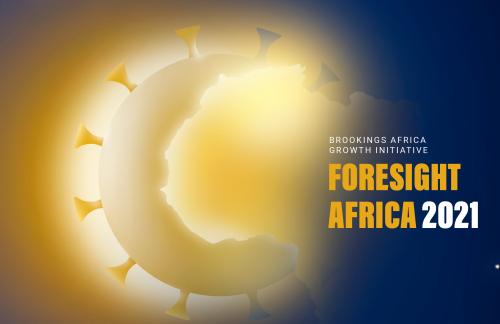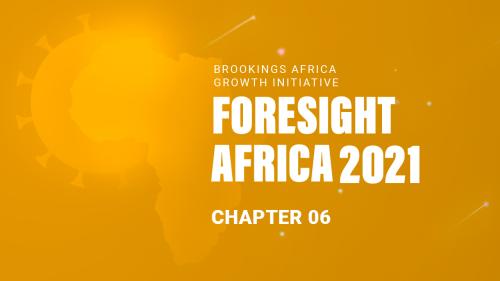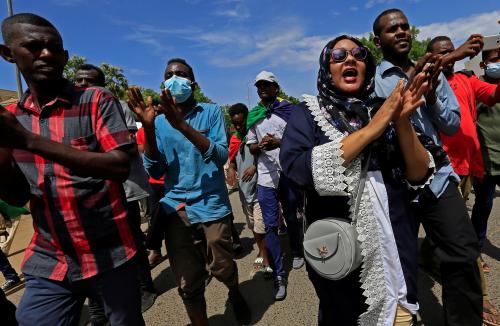The pandemic has seen citizens mobilize to combat dissatisfaction with governments around the world. Africa in particular has seen an increase in protests in countries like Nigeria, Tunisia, Senegal, Cameroon, Liberia, and South Africa, among others. Indeed, according to the Armed Conflict Location and Event Data Project, “the frequency of mass demonstrations in Africa have increased more the seven-fold in the past decade.” This increase can be seen in the figure below. So, what does this mean for citizen dissatisfaction and for the longevity of changes in the times of COVID?
Figure 1. Protests across Africa
Source: Ordu, A., & Golubski, C. (Eds.). (2021). Foresight Africa: Top priorities for the continent in 2021. Washington, DC: Brookings Institution.
According to a February 2021 update by the National Democratic Institute, “the COVID-19 pandemic has placed acute stress on government and civil society actors,” and the impact of this will be long-lasting. In fact, in Chapter 6 of Foresight Africa 2021, Executive Director of the Mo Ibrahim Foundation Nathalie Delapalme explores this point, sharing results from the Ibrahim Index of African Governance (IIAG), which measures and monitors governance performance across African countries. In her viewpoint, Delapalme argues that citizen participation fuels democracy but warns that citizen satisfaction is, according to the IIAG, decreasing. Indeed, in 2020, citizen satisfaction reached its lowest level since 2015, a trend Delapalme attributes to distrust from African youth, exemplified by increased protests.
As Delapalme discusses in her viewpoint, progress toward good governance has been variable across indicators (Figure 2). For example, African countries’ progress toward “Human Development” and “Foundations for Economic Opportunity” not only has been bouncing back but also has shown increasing improvement over the last five years. At the same time, performance in “Security and Rule of Law” and “Participation, Rights, and Inclusion” has experienced an overwhelming decrease over the same timeframe.
Figure 2. African countries: IIAG categories, number of countries per trend classification
Source: Nathalie Delapalme, “Governance in Africa: Citizen dissatisfaction is growing, and COVID-19 is likely to reverse recent gains,” in Foresight Africa: Top priorities for the continent in 2021.
As countries continue to struggle with socioeconomic challenges, human rights violations, and controversial lockdowns, Delapalme warns that a looming COVID-related recession “could threaten to reverse the gains obtained over the last decade in economic and human development, which up to now had been the main drivers of overall progress on the IIAG as governments have gained greater ability to provide public goods and services to their people.”
In the time of COVID-19, then, will there be a reversal in the “wins” for those countries that have progressed in certain areas of governance? Or will COVID-19 bring about unique opportunities for countries to create an entire new system? Delapalme optimistically believes in the latter, stating that “history has taught us that no momentous change has ever taken place without being triggered or forced by a major crisis.” With that, she hopes that COVID-19 can be a catalyst of change for those who need it.
The Brookings Institution is committed to quality, independence, and impact.
We are supported by a diverse array of funders. In line with our values and policies, each Brookings publication represents the sole views of its author(s).










Commentary
Figure of the week: Governance, citizen dissatisfaction, and levels of trust in Africa
March 31, 2021